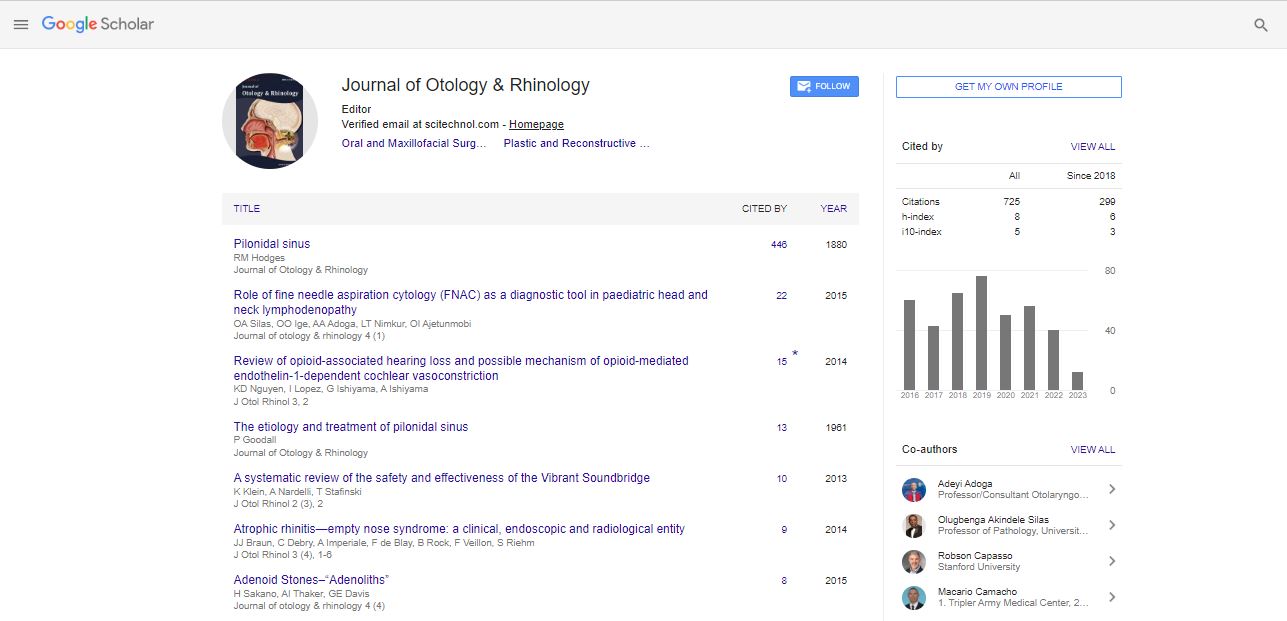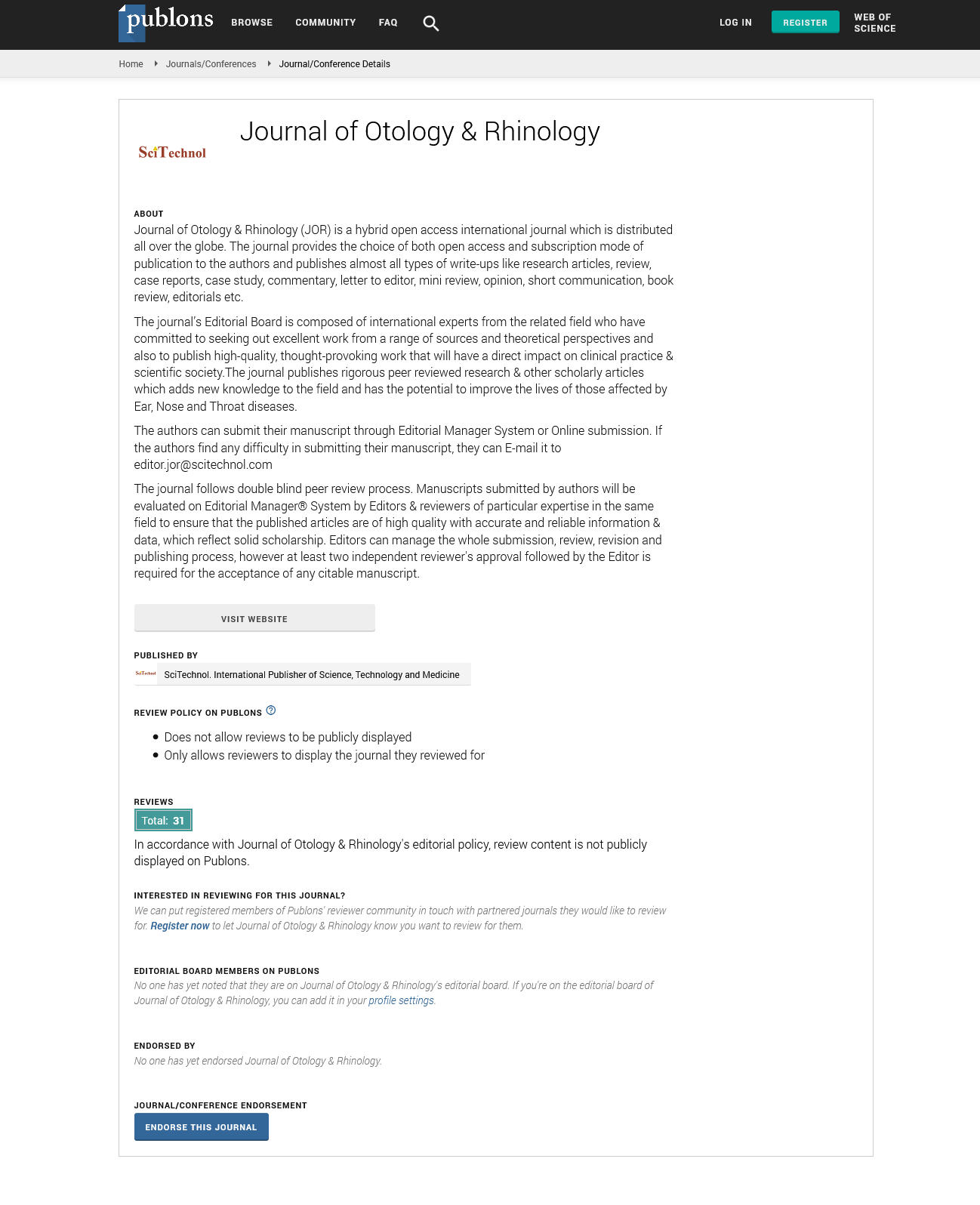Review Article, J Otol Rhinol Vol: 3 Issue: 2
Review of Opioid-Associated Hearing Loss and Possible Mechanism of Opioid-Mediated Endothelin-1-Dependent Cochlear Vasoconstriction
| Kimanh D Nguyen*, Ivan Lopez, Gail Ishiyama, and Akira Ishiyama |
| UCLA School of Medicine, Los Angeles, California, USA |
| Corresponding author : Kimanh D Nguyen UCLA School of Medicine, Los Angeles, USA Tel: 310-825-4949; Fax: 310-206-5106 E-mail: kimanhnguyen@mednet.ucla.edu |
| Received: November 15, 2013 Accepted: January 12, 2014 Published: January 25, 2014 |
| Citation: Nguyen KD, Lopez I, Ishiyama G, Ishiyama A (2014) Review of Opioid-Associated Hearing Loss and Possible Mechanism of Opioid-Mediated Endothelin-1-Dependent Cochlear Vasoconstriction. J Otol Rhinol 3:2. doi:10.4172/2324-8785.1000145 |
Abstract
Review of Opioid-Associated Hearing Loss and Possible Mechanism of Opioid-Mediated Endothelin-1-Dependent Cochlear Vasoconstriction
Within the past several decades, there have been multiple reports of profound sensorineural hearing loss attributed to opioid use. Among the implicated opioids are both prescription analgesics used within their recommended dosages such as codeine, hydrocodone/ acetaminophen, and oxycodone/acetaminophen, as well as illicit substances such as heroin. Opioid-associated hearing loss has lead to both reversible and irreversible profound bilateral hearing loss, and the mechanism by which this occurs is currently unknown. Audiometry, otoacoustic emission, and auditory brainstem responses suggest that the lesion is cochlear in origin, as does the finding that patients with irreversible loss respond well to cochlear implantation. A plausible mechanism for this loss is opioid-induced vasoconstriction causing cochlear ischemia and subsequent hearing loss. Opioid receptors have been found in the inner ear in various animal models, and opioids are well-known to promote diminished blood flow, ischemia, and infarction. Opioids are also known to increase the production of and stimulate the release of endothelin-1, which is a potent endogenous vasoconstrictor that is found throughout the body as well as in the inner ear. In this review, we summarize the reports of opioid-associated hearing loss and propose that this hearing loss is mediated by vasoconstriction and cochlear ischemia via opioid-mediated stimulation of the vasoconstrictor endothelin-1.
 Spanish
Spanish  Chinese
Chinese  Russian
Russian  German
German  French
French  Japanese
Japanese  Portuguese
Portuguese  Hindi
Hindi 


